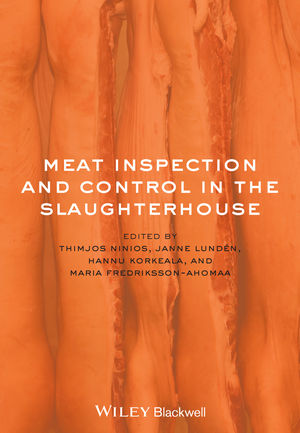Success is in the Cards
BY SAM GAZDZIAK, SENIOR EDITOR
A knack for innovative hamburger products and a unique fully cooked process has made Cardinal Meat Specialists one of the best solutions for customers in the Canadian meat industry.
Burgers and ribs may be considered all-American foods, but their appeal is far from isolated to the United States. Millions of consumers in Canada dine on hamburgers and ribs at home and in restaurants, and a good number of them are eating products made by Cardinal Meat Specialists Ltd. of Mississauga, Ontario.
Cardinal Meats has been run by the Cator family since its start in 1966. The company’s connection to the meat industry goes back to the 1920s, when Jack Cator was selling meat door-to-door out of a salt wagon in Ontario. That led to a series of butcher shops across Toronto, which in turn eventually led to Jack’s son, Ralph, starting Cardinal Meats. The company began as a full-line purveyor of products, but hamburgers quickly became a mainstay. When Burger King started its Canadian operations, it was cooking up fresh patties from Cardinal Meats.
In 1985, the company scaled back its operations, getting out of the red meat sector of the business and taking its trucks off the road. “Distributors started to take on a much larger role, and we could see the efficiency they had in getting things to market,” says Brent Cator, Ralph’s son and current Cardinal Meats president.
The company has two facilities in Mississauga, one for producing fully cooked, “kettle cooked” meat products, and another for producing hamburgers. “I’d say we’re recognized as the most technologically advanced in Canada for burger capabilities,” Cator says, pointing out that the company has more than 100 burger items in its repertoire. That includes fortified burgers (such as with Omega 3), veggie burgers, turkey burgers, fresh burgers, chicken burgers and Halal burgers (a burger that is permissible to eat according to Islamic law). It produces a wide variety of stuffed burgers and burgers with cheese and other types of inclusions. It also offers a 1-pound burger that cooks up in the same time as a 6-ounce burger. “What we’ve been able to do is bring those to our customers so that they can get a value-added lineup going in their operations,” Cator explains.
Cardinal Meats has a variety of foodservice and retail customers, sold under the Cardinal, Roadhouse and Select brands, among others. The company prides itself on being a solutions provider more than simply a processor, meaning that it is constantly working on new product development and studying trends in the food industry that can be applied to its products. The way that trends have spread across the food industry has changed, and Cardinal Meats has kept up with the change. “Years ago, you used to look at the foodservice industry, see what options were available there and catching on and then bring those items into retail,” Cator points out. “Today, we have to keep as much an eye on the retail segment as foodservice.” He says that retailers in Canada have gotten very creative in developing unique dining possibilities for the household in order to compete with restaurant offerings.
With product development being such an important part of Cardinal Meats’ operations, it’s a small wonder that the company has developed methods to get from the initial ideas to the actual production as quickly as possible. The employees who will be doing the actual processing on the floor of the facility are brought into the process from the very beginning. “When we go to deploy a product, we can do it in moments instead of months,” Cator says. “We’re not just creating a product in a lab and then hoping it can be scaled up into production.”
Kettle Cooking prowess
One of the factors to Cardinal’s success has been its mastery of Kettle Cooking, a process developed by Cator himself. The process provides many benefits to the company and its customers and serves as an important point of distinction between Cardinal and its competition.
Cator is hesitant to go into the specifics of kettle cooking, but he describes the process as submersion cooking in a sealed environment. “Critical to what we do is both the heat and chill process that we employ,” he says. “What we were able to do is take some commonly held cook technologies that were out there as far as submersion cooking and take it to another level.”
The benefits from the process include increased food safety, done through a very cost-effective cooking process that keeps the meat product sealed in its package. In terms of taste, Cator says the benefits are similar to that of slow cooking, where the end result is a tender, flavorful product.
The company got involved with the process with ribs, which Cator calls the hardest product to properly cook. “We found that [foodservice] operators and people at home were struggling with ribs to be able to do them consistently, because there’s the texture of the meat as well as the release from the bone on a consistent basis,” he explains. Once the company began producing kettle-cooked ribs, that business grew dramatically, and Cator says the company had its hands full keeping up with that demand.
Eventually, Cardinal started looking at other applications for kettle-cooked products, “and we discovered the technology was phenomenal for those, and it was quite frankly an easier development [than ribs],” he says. The company now produces kettle-cooked beef roasts, pork roasts, fajita steaks and ground beef products like taco meat, meat loaf and meatballs. Those products can also be prepared with different spice rubs, flavors or sauces to the customer’s specification.
As an additional benefit, the variety of cooked products has helped to flatline the business, as raw hamburger patties are a seasonal seller for spring and summer months, “particularly in the Great White North here,” Cator jokes. The fully cooked items have proven to be year-round sellers.
Kettle-cooked products represent Cardinal’s fastest-growing market, for both foodservice and retail. Cator says that the process solves both the concerns that restaurants and consumers as far as time and cost constraints. A restaurant needs time, people and equipment to prepare an entrée, and then more people and time to clean up afterwards. A home cook needs to prepare a healthy, tasty meal but may only have a half-hour to do it. “That’s our focus,” Cator explains, noting that his company’s products, frozen or fresh, provide a consistently cooked product with a minimum of preparation time. “I can have three guys who are cook experts look after an 800-restaurant chain with a consistent product,” he points out, adding that if the restaurant were to produce the same product, it would require several chefs per restaurant location, all of which would need to be trained to produce that same consistency. Using the kettle-cooked products, the chain is then able to take some of that staff and move them to the front of the restaurant, where they can better serve the consumers.
A growing distribution
Recent food trends have played directly to Cardinal Meats’ strengths. “We find restaurants are looking for premium burgers that are truly indulgent,” Cator says. “There’s no doubt that in the last eight years, patties have continued to get bigger and juicier, with more premium cuts going into the product.” Today’s hamburger is a far cry from hamburgers being merely a value product that restaurants reluctantly sold and had a quality level that didn’t appeal to consumers. Consumers have shown that they’ll pay $8.99 (CAN) for a hamburger, Cator notes, as long as it’s a quality burger that leaves them feeling satisfied.
Cardinal Meats launched the Roadhouse brand for hamburgers in 1989. It started off as a foodservice brand before moving into the retail
sector, and it was known at the time for being almost twice the cost of any other hamburger on the market. Cator says that along with the cost came a better and more consistent product than restaurants were able to find otherwise. Roadhouse is now the largest-selling hamburger brand in Canada, not to mention one of the largest sellers in the fully cooked ribs category.
The province of Ontario is Cardinal Meats’ largest consumer base, but the company continues to extend its reach from coast to coast. The company has also hired a new director of export sales to set up a sales distribution network throughout the United States. Given the size and scope of the U.S. market, the company is being careful about companies with which it will partner and markets it will enter. “I want to be able to take core competencies that have absolutely driven the day here and bring those into the appropriate U.S. markets and segments,” he says. One advantage the company will have is that many of its Canadian customers are U.S.-owned organizations, so there are some obvious relationships that can be extended.
Cator says that the company’s greatest strengths include the values and integrity that were set down by his father and grandfather. To that he adds the company’s focus on always putting the customer first, and he says those core values will help create a point of distinction wherever the company sells its products. Of course, the same needs that exist among consumers in Canada exist among American consumers, most notably the need for cooked solutions that can save time and money. “There’s an insatiable amount of need out there, and we’re committed to it,” Cator says.
Family focus on innovation
Cator has been president of Cardinal Meats for three years, having come up from the operations side of the business. His brother, who left the company to act as a consultant to foodservice operators, and his father who both serve on his seven-member board of advisors, keep the family tradition going.
Cator has also followed his father’s footsteps in taking on his role as the president of the North American Meat Processors Association (NAMP). Ralph Cator was the first Canadian president of NAMP, and his belief in the association brought many benefits to the company over the years. “A lot of people would go to trade shows and educational sessions that NAMP would hold, and they would hear about things from a futurist or a technologist, and they’d say, ‘Wow, that’s going to come my way some time.’ Dad did the opposite,” the younger Cator says, explaining that his father looked at how to add the latest technology to the business and create another point of differentiation for Cardinal Meats.
As a result, the company uses the most sophisticated fat-moisture protein analysis technology in the industry and was the first company in Canada to employ technology to make more tender hamburger patties. It employed a Hazard Analysis Critical Control Points (HACCP) program years before it became mandatory, and it is the first to put a DNA lab in the facility for microbiological testing, enabling the company to get a full microbiological release on products within 24 hours.
Cardinal Meats’ two plants in Mississauga, Ontario, total a little over 40,000 square feet in size combined. They both operate under the principles of just-in-time systems and throughput, to the point that one of the plants has no freezer, despite the fact that Cardinal does a large business in frozen meats. “[That plant] is fully dedicated to throughput. We work with our cold-storage customers or do direct-to-customer,” Cator explains. He adds that large rooms like freezers may add on to a facility’s square footage, but it doesn’t provide much dollar value to a company’s customers. Cardinal Meats has chosen to focus on the parts of the business that bring the most value to its clientele. “I don’t know anybody — and I’ve gone through a lot of operations from around the world — that has the kind of capacity and throughput that we do in the footprint that we have.”
Cardinal Meat Specialists Ltd.
Founded in 1966
Headquarters: Mississauga, Ontario, Canada
2005 sales: More than $50 million (CAN)
Employees: 100 full-time, about 30 seasonal
Plants: 2
Brands: Cardinal, Roadhouse, among others



Report Abusive Comment